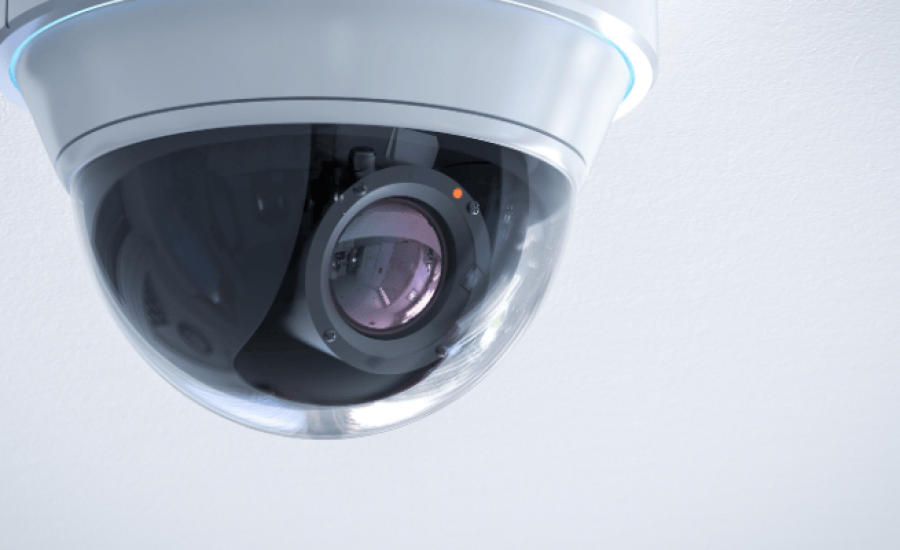The Ins and Outs of Video Surveillance Guidelines in the Hospitality Industry
Whether you’re a seasoned pro at installing hotel security systems or just starting your research, understanding the security camera requirements for hotels is essential.
Installing security cameras helps deter criminal activity, supports police investigations, and keeps your staff and guests safer than in properties without surveillance.
Read on to learn where hotels should and shouldn’t place cameras—and how to stay compliant with the law while protecting your business.
What is a Security Camera?
A security camera monitors and records activity in or around a residential or commercial building to protect people and assets. Hotels, motels, and resorts use them to track movement and reduce risk in high-traffic areas. Today’s hotel security cameras go far beyond basic video capture. Modern systems often include:
- AI-assisted motion detection
- License plate and vehicle recognition
- Behavior analytics
- On-device encryption
- Edge processing for real-time alerts
Hotels use these systems to monitor high-traffic areas, support investigations, improve operations, and create safer environments for guests and staff. While hotel security teams often monitor multiple feeds at once from a central control room, AI technology can now supplement gaps in coverage with real-time advanced monitoring. They can quickly communicate with guards stationed throughout the property to prevent crimes or monitor vulnerable areas.
Where are Security Cameras Required?
Hotels, motels, inns, lodges, and similar properties must place cameras in public areas to help protect guests and staff. From the moment someone enters the lobby, they should be on camera—unless there’s a malfunction, which most guests wouldn’t notice.
Public access areas where cameras are typically installed include:
- Lobbies and main entrances
- Hallways and elevators
- Parking lots and garages
- Pool decks, gyms, and recreation areas
- Loading docks and back-of-house entry points
Footage from parking lot cameras can help resolve incidents like theft, vandalism, or collisions. In recreational areas, recordings can be critical in understanding events such as injuries, accidents, or drownings. In all these cases, video evidence can offer clarity when no one witnesses an incident firsthand.
Recent privacy laws ensure guests and staff both feel safe at your premises while having their privacy respected. Therefore, hotels should make sure to put up clear signage to notify guests when they are under surveillance. In addition, depending on the jurisdiction of the hotel, there is a minimum retention period of 30-90 days where they can keep the video footage.
Where are Security Cameras Not Allowed?
As much as hotels need surveillance, they also need to respect legal privacy boundaries.
Therefore, cameras are prohibited in:
- Guest rooms
- Bathrooms
- Spa treatment rooms
- Changing rooms or locker areas
- Any space where guests reasonably expect privacy
You also need to consider camera placement carefully:
- You can mount a camera on a balcony facing outward to monitor public spaces like a parking lot.
- You cannot point that camera toward the inside of a hotel room.
- For rotating/zooming PTZ (pan, tilt, and zoom) cameras, ensure none of their angles capture private interiors.
Surveillance belongs in public and common areas only. For more on proper placement, check out our post: Should Hotel Lobbies and Hallways Have Security Cameras?
Updated Camera Technology & Features Hotels Should Look For
NDAA-Compliant and Cyber-Secure Hardware
With increased cybersecurity scrutiny, hotels should prioritize systems that:
- Are NDAA (National Defense Authorization Act) compliant, meaning these devices are from manufacturers that meet US cybersecurity guidelines
- Support encrypted transmission & storage to ensure the data is protected from unauthorized users and tampering
- Receive regular security and firmware updates
- Integrate with hotel networks
Cloud and Hybrid Cloud Video Storage
Today’s top video storage options include:
- Cloud-native video storage, where footage is only stored in the Cloud
- Hybrid systems with local and cloud redundancy
- Video-as-a-Service (VaaS) subscription options
AI-Powered Analytics
With AI-powered analytics, hotel security cameras have the capability to analyze video footage in real time, detecting:
- Suspicious activity
- Loitering or crowding
- Vehicles and license plates
- Event search
Power over Ethernet (PoE)
PoE systems keep recording during internet outages by using Ethernet cables to power the cameras and store footage locally. Once service returns, the system uploads the stored data to your network—protecting you from losing footage during storms or other disruptions.
Choosing the Right Security System for Your Hotel
When evaluating systems in 2025, hotels should consider:
- Property size and layout
- Brand standards (Marriott, Hilton, IHG, etc.)
- Insurance or risk-management requirements
- Guest-privacy compliance
- Cybersecurity posture
- Scalability across multiple properties
Groove Technology Solutions provides modern, hotel-ready surveillance systems that meet current industry standards, including NDAA-compliant hardware, hybrid cloud, and AI-powered analytics. Our team can help you evaluate your options and design the right solution for your property.
Contact us today to upgrade your hotel’s surveillance system with a secure, modern solution tailored to your needs.


